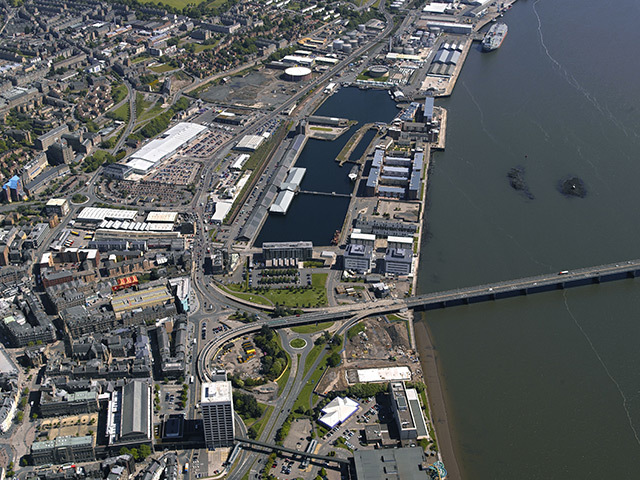
Scotland’s ports are not fit for purpose to attract offshore wind operators to invest in the region, a group of leading energy industry figures has warned.
The lack of specialist facilities such as a major manufacturer or a local jack-up provider means wind turbine operators are more likely to choose continental ports over Scottish.
Speaking at the Offshore Wind and Supply Chain event in Aberdeen on Wednesday, Luke Bridgman, senior offshore project engineer at German wind turbine manufacturers Senvion, said Scotland lacks a business case that would make it a more attractive option for investors.
Cost reduction for offshore wind is a priority, Mr Bridgman said.
Paul Reynolds, senior consultant for offshore wind at DNV GL and one of the speakers at the conference told The Press and Journal Scotland “could be doing more” to attract offshore wind operations.
“A large part of O&M spend will be within the close proximity to the windfarm itself and therefore you need projects to get that spend locally.”
Mr Reynolds said that the country needs to develop more market potential to address the issue.
The comments come as a blow to the aspirations of port owners from Kishorn, Nigg and the Moray Firth down the east coast to Leith Docks in Edinburgh, where millions have been invested to attract manufacturers set to develop planned offshore windfarms.
A spokesman from Forth Ports which operates facilities at Dundee and Leith said: “The Port of Dundee stands as ready as any other port in the UK to accommodate offshore renewable energy operations. There is existing land, warehouses as well as the relevant cargo handling expertise already at the port.
“We believe that until we know how the outcome of the Electricity Market Reform shapes the energy market there is still much uncertainty for many organisations in the renewables marketplace.”
Earlier this month two major wind turbine manufacturers due to invest hundreds of millions in operations in Scotland announced plans to consolidate their investments to save costs.
Since 2012 both Areva and Gamesa have been planning to establish wind turbine manufacturing operations in Scotland, creating hundreds of jobs.
Ports owners hoping to attract major manufacturers have said delays in making investment decisions are driven by UK government failing to outline its plans for Electricity Market Reform. The warning about poor capacity in Scottish ports comes after claims that the Scottish offshore wind industry has been “left in limbo” by a collapse in investment and confidence in the sector.
The trade body, Scottish Renewables, said investment in the sector fell by more than half in 2013 as planning permissions were delayed and government-backed market incentives remain “unclear”.
Meanwhile, the manager of a Scottish energy skills body said the region will have the skills necessary for the development of offshore wind in place when the time comes, as long as the sector can provide job security for the workforce.
Rob Orr, of Skills Development Scotland, told The Press and Journal/Energy Voice that despite an abundance of skilled labour in the pool, the uncertainty surrounding energy as a whole means the offshore sector might struggle in securing qualified staff.
“The skills are there and the skills can be there – where you have a number of college students and 3000-plus apprenticeships starting each year in with energy and engineering, there is an awful lot of people gathering those skills,” Mr Orr said.
“The difficulty is the phasing of projects coming into Scotland and also the competition of other sectors, such as oil and gas, taking those skills away.
“So the attractiveness of the sector is maybe compromised by the uncertainty surrounding the sector.”
Mr Orr also admitted that experienced labour is in high demand and said the body needs to work more closely with the industry to address the issue.
Recommended for you
